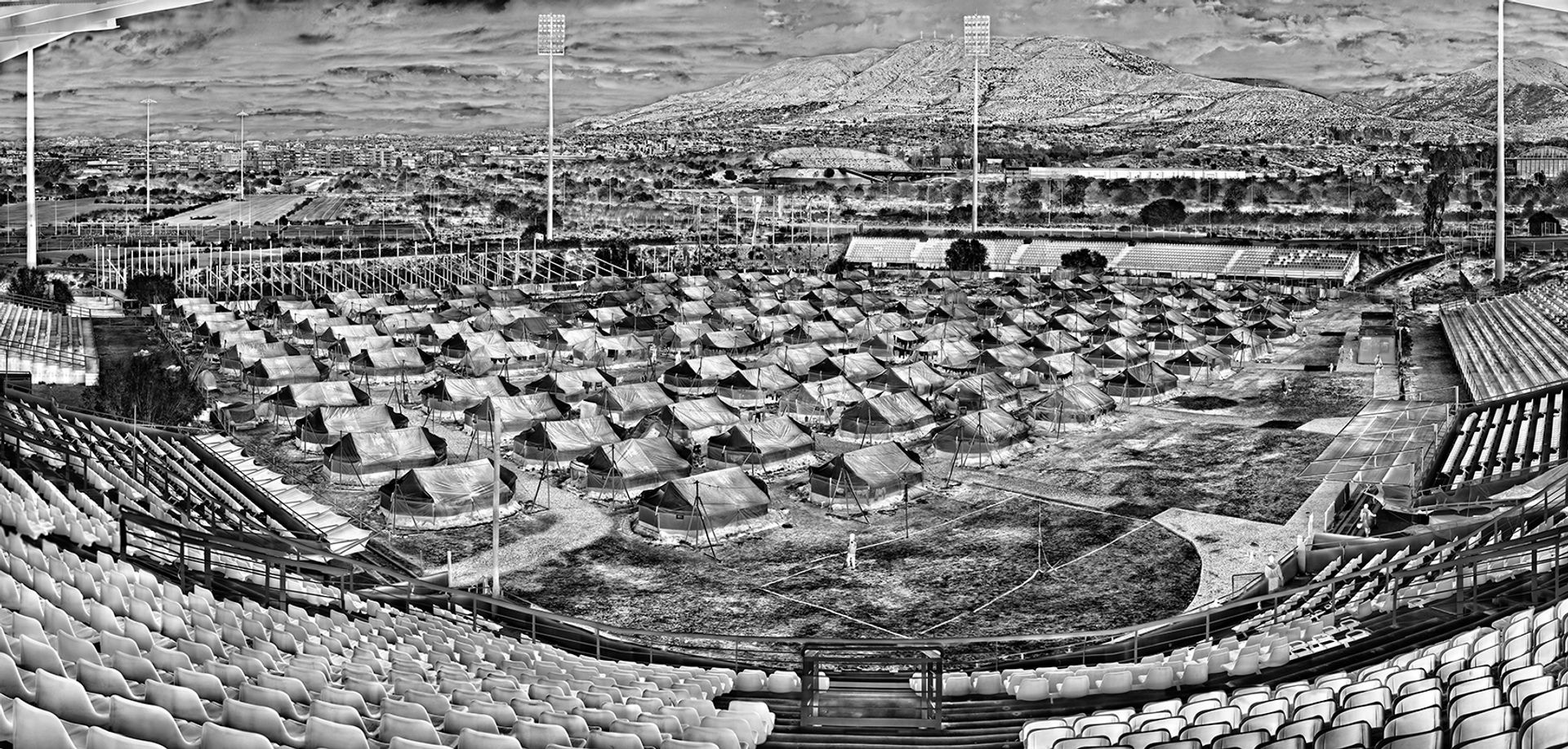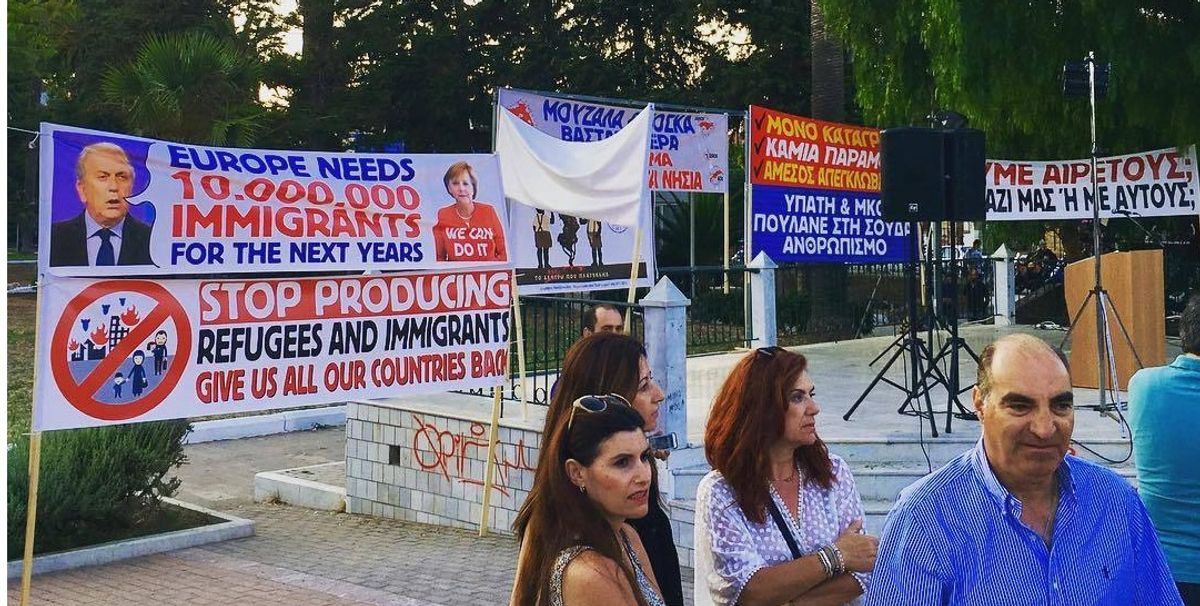The Irish photographer and 2017 Prix Pictet winner Richard Mosse says he was arrested last Thursday by undercover Greek police while peacefully observing an anti-refugee rally by residents on the island of Chios, near Turkey. On the island to film an episode of Bloomberg’s Brilliant Ideas series—an interview programme that profiles major international artists—Mosse posted on Instagram that he was wrestled to the ground by plain-clothes policemen and held at a local jail overnight.
Mosse has been tracking the journeys of refugees from North Africa and the Middle East to Europe as part of his prize-winning work, which includes the photographic series Heat Maps and the film installation Incoming, recently shown at the Barbican’s Curve Gallery in London. “I’ve seen such warmth and compassion from the people of Lesbos but here on Chios the vibe is completely different,” Mosse wrote on Instagram. “Extremist, angry and afraid.”

Mosse was freed after spending several hours in a small cell thanks to the intercession of Greek photographer Daphne Tolis, who told The Art Newspaper via phone that police let Mosse go after she impressed upon them that he was “a famous photographer who had recently been given an important award by Kofi Annan”. Tolis suggested that the arrest was caused by “unprecedented tension” between groups who oppose the presence of refugees on the island and those who support them. With more than 3,000 migrants, Chios’s main detention centre is at a bursting point, The Guardian reports, and officials are scrambling to cope with rising conflicts on the island, including an April arson attack on the Souda migrant camp by far-right extremists.
In an email, Mosse spoke about the ill-treatment received by refugees and the international press in Chios: “The police seemed to jump to the conclusion, based on me being a foreigner and wearing black, that I was an anarchist and must be arrested. I hurt no one; spoke to no one; bumped into no one; harassed nobody. If, as an EU citizen, I can be treated in this way by a European police force, how then are stateless and vulnerable refugees treated?”


